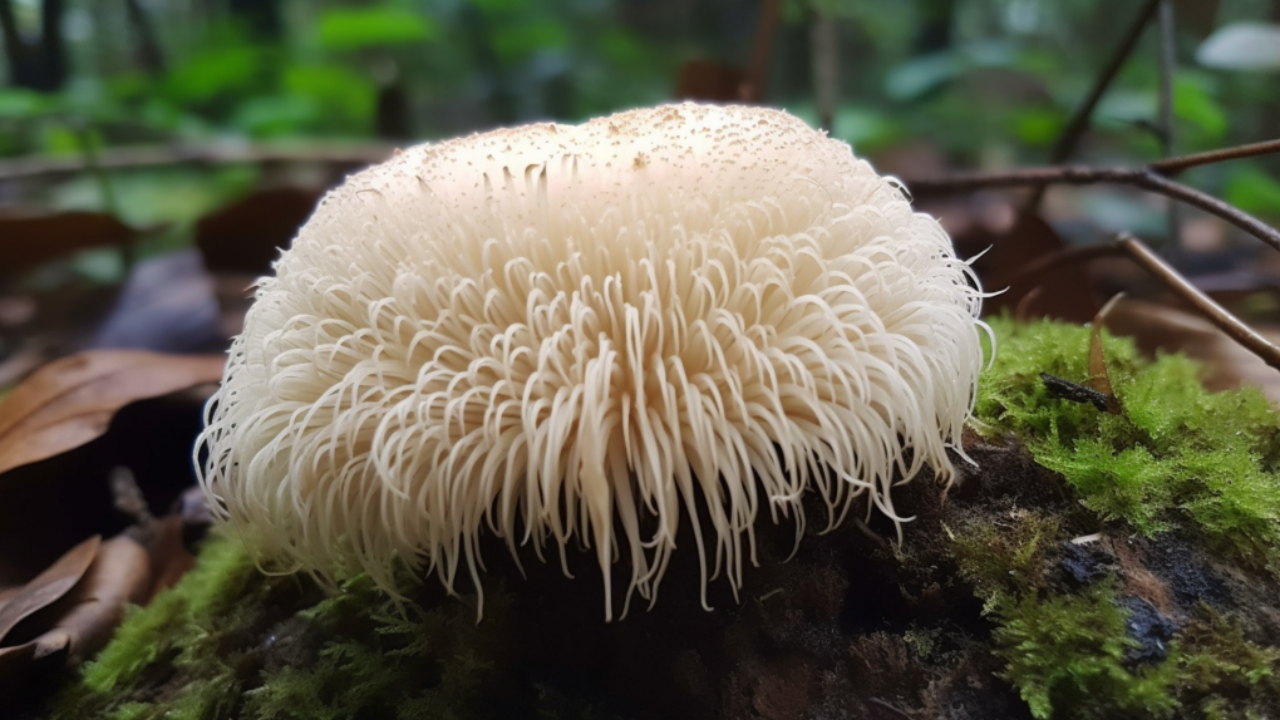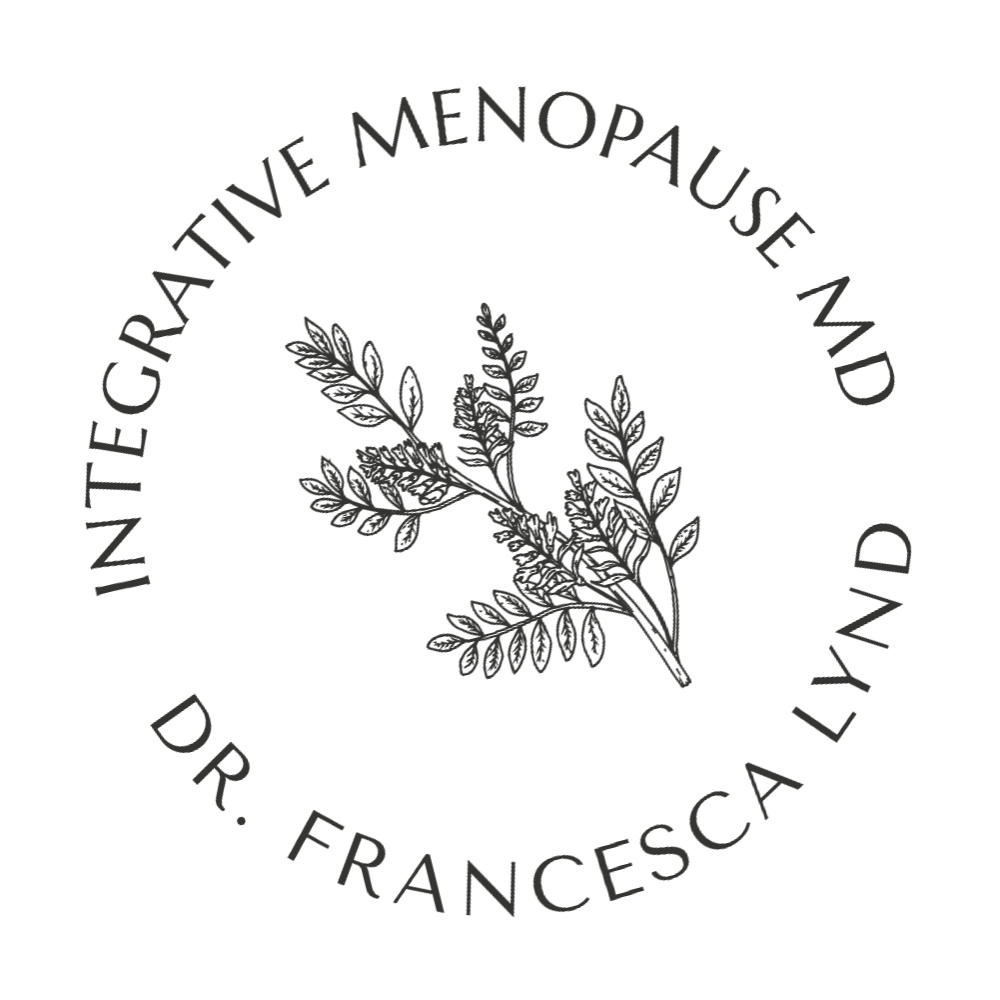Can Lion’s Mane Mushrooms Support Your Brain During Menopause?
Jul 23, 2025
As women in midlife, many of us start to notice subtle shifts—words not coming as quickly, focus that drifts, or mental fatigue that hits harder than it used to. These brain changes during perimenopause and menopause aren’t just in your head—they’re real, and they’re connected to hormonal changes, inflammation, and reduced neural resilience.
What if something as natural as a mushroom could help?
Meet Lion’s Mane: The Brain-Loving Mushroom
Lion’s Mane (Hericium erinaceus) is a fuzzy white mushroom that’s long been used in traditional Chinese medicine. It’s now gaining attention in neuroscience for its ability to stimulate nerve growth factor (NGF), a protein crucial for brain plasticity, memory formation, and the repair of nerve cells.
World-renowned mycologist Paul Stamets calls Lion’s Mane one of the most promising neurotrophic natural substances available. In his work and public lectures, he emphasizes its potential to regenerate myelin (the protective sheath around nerves), support cognitive function, and even play a role in reducing risk for neurodegenerative diseases like Alzheimer’s and Parkinson’s.
Stamets believes Lion’s Mane could be a key player in what he calls “myco-neurogenesis”—the ability of certain mushrooms to stimulate brain repair and regrowth. For women experiencing menopause-related cognitive changes, this kind of natural support may be more relevant than ever.
What Does the Research Say?
Cognitive Support During Menopause
A small placebo-controlled study in menopausal women showed that Lion’s Mane improved focus, reduced anxiety, and helped with irritability when taken daily for just four weeks. Participants consumed about 2 grams per day via mushroom-enriched cookies and reported better mental clarity and fewer palpitations compared to the placebo group.
While the study was small, the results align with anecdotal reports and traditional use: Lion’s Mane appears to support both cognitive and emotional resilience, something many women need during the hormonal shifts of menopause.
Preventing Cognitive Decline
In older adults with mild cognitive impairment (MCI), daily supplementation with 3 grams of Lion’s Mane powder for 12 to 16 weeks led to improved memory and function on cognitive tests. In some studies, the benefits waned after the mushroom was discontinued—suggesting that continuous use may be important for sustained support.
In rodent models, Lion’s Mane has been shown to:
- Promote hippocampal neurogenesis (the part of the brain responsible for memory and learning)
- Reduce amyloid-beta plaque accumulation (a key marker in Alzheimer’s disease)
- Regenerate damaged peripheral nerves
Dosage Recommendations
|
Goal |
Dosage |
Duration |
|
Menopause cognition & mood |
2–3 grams per day |
At least 4–12 weeks |
|
MCI / cognitive decline prevention |
3 grams per day |
12–16 weeks |
|
Long-term brain support |
1–3 grams per day |
Ongoing, with periodic breaks |
Look for products that contain fruiting body extract (not just mycelium), and ideally standardized levels of hericenones and erinacines, the active compounds responsible for NGF stimulation.
Whole-spectrum extracts, should be chosen because they preserve the complex synergy of compounds found in the mushroom rather than isolating individual elements.
Is It Safe?
Lion’s Mane is considered safe for most people and has been used in food and medicine for centuries. Side effects are rare but may include:
- Mild digestive upset
- Skin rash or sensitivity in some individuals
- Possible interactions with blood-thinning or diabetic medications
Always consult your provider before starting any new supplement, especially if you have chronic conditions or take medications.
Final Thoughts
Menopause is a neurological transition as much as a hormonal one. Brain fog, lapses in memory, difficulty concentrating—these can all erode confidence and quality of life. Lion’s Mane is certainly NOT a magic fix, but it’s a natural, research-backed tool with a remarkable safety profile and a growing body of clinical support.
As Paul Stamets says, “We are now entering a golden age of mycology, where the intelligence of fungi is finally being appreciated for the benefit of human health.” For women in midlife, Lion’s Mane may be one of the most promising ways to stay sharp, protect long-term cognitive health, and support emotional balance—naturally.
Wellness always,
Dr. Lynd
Want to dive deeper into functional support for your midlife brain? Join our Pause & Flourish Collective to receive our monthly newsletter for the latest in science-backed wellness strategies for menopause and beyond. You will also have the opportunity to to Ask Me Anything…Menopause. Questions answered monthly on a private podcast feed. All while enjoying a 20% discount on quality supplements through Fullscript. To learn more click here!
Clearly, this post is for general information only! This is not medical advice. No physician/patient relationship is formed. Utilizing any of this information is at the reader's own risk. This content is not a substitute for personalized medical advice, diagnosis or treatment. Seek advice from your personal professional provider who knows you and your current medical needs.





